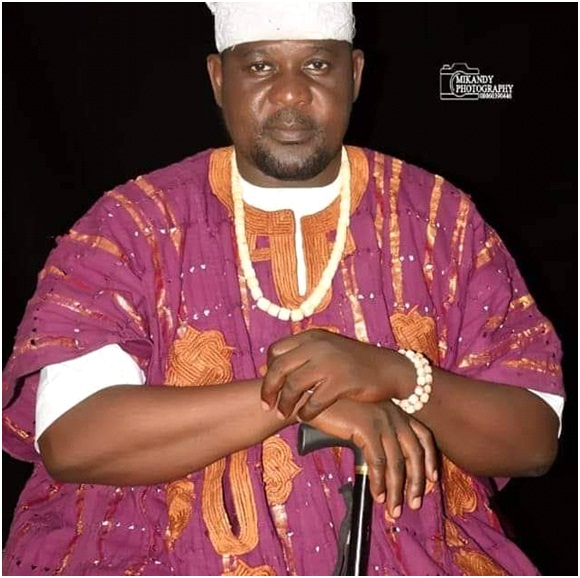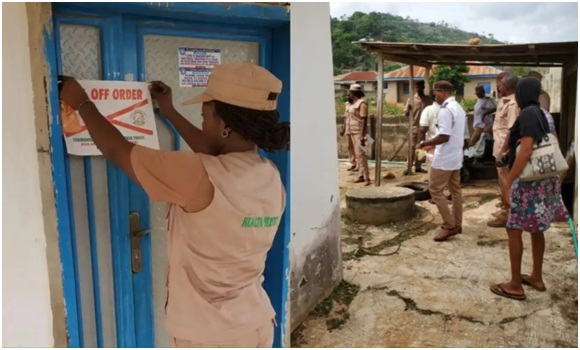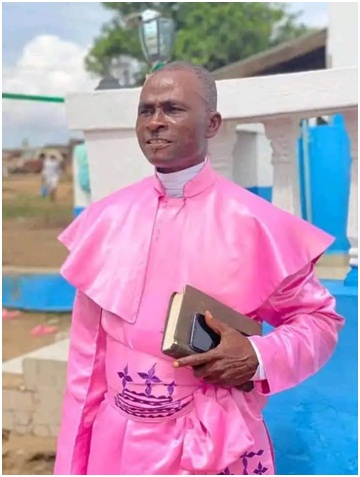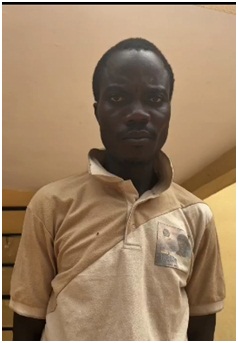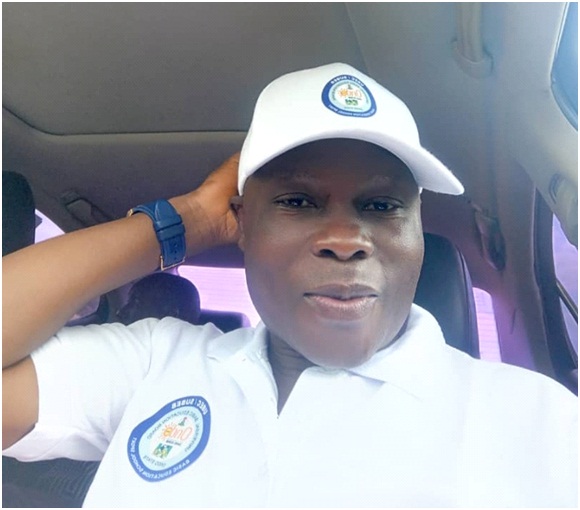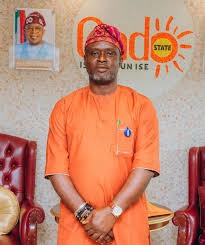Dream conversation with President-elect
By Busuyi Mekusi
|
Events in life, both pleasant and unpleasant, could appear like a dream. This is different from hopes and aspirations one emplaces about the future, not minding the unrealistic possibility therein. Dream, as a noun, means imaginary or events seen in the mind while one is asleep. It could also mean a hope, wish, visionary scheme or an idle fancy. However, talking neurologically and psychologically, dreams are believed to be a source of unending mystery for scientists and psychological doctors. A journal, the MedicalNewsToday, that was medically reviewed by Tomothy J. Legg and Hannah Nichols in 2018, sees dreams as “stories and images that our minds create while we sleep” which could be “entertaining, fun, romantic, disturbing, frightening, and sometimes bizarre”.
The functionality of the brain and the process of memorialising are believed to be central to dreams, as they are seen as a representation of unconscious desires and wishes, interpretation of random signals from the brain during sleep, consolidating and processing information gathered during the day and working as a form of psychotherapy. The haziness around dreams makes it difficult to be subjected to laboratory investigation, as technology and new research nuances could help further our understanding about them. Dreams remain a universal human experience that constitutes consciousness, reflecting “sensory, cognitive and emotional occurrences during sleep”.
This is more so as the inseparability between the actual physical existence and the activities in dreams is best found in how the person of the dreamer in a dream, lying in a sleeping state, could respond to the activities of his personality in a dream. For instance, someone that jumps in a dream could also move his body as a reflex response in actual life. It is to this end that people freely draw connections between the believability of the course of events in a dream and what exists in actual life. Someone inflected with an injury in dream could end up with same injury in actual life.
These many uncertainties about dreams have made them a source of investigation, as some people hold that dreams could not only respond to past and present realities, but able to speak about the future. Whereas neuroscientists are committed to knowing the structures involved in dream production, organisation and narratability, psychoanalysis is interested in unmasking the meanings of dreams, by placing them against the context of the experiences of the dreamer.
As dreams could be thematically classified using corresponding realities in waking life, Freud, as part of his psychoanalytical interrogation and projection, has posited dreams as part of the unspeakable repressed libidinal aspects of human emotions, which could not be fulfilled in reality, but actualised as wishful thinking in an unattainable world. Further to this is the fact that autobiographical and episodic memories are said to be central to dreams.
Apart from the psycho-neurological perspectives to dreams, the place of the involvement of external stimuli has brought religious readings to dreams, even as classical histories point to how human personages related with supreme or metaphysical beings and vice versa in dreams. With the Quran designating vision as Ru’yaa and sleep as Manam, Islam’s perspective about dreams is a spiritual perception, including seeing dreams in three dimensions: as a divine guidance and glory of God; sorrow from the devil and sometimes they are seen as conflicts of daily living or past events.
Some instances of biblical narratives about dreams are those of: Joseph, the butler, the baker, Pharaoh and Nebuchadnezzar. The different dreams on their own either generally presaged into the future or specifically warned about impending dangers. Literary artists have similarly used dreams in their texts to underscore human sensibilities, as found in Carroll’s Alice Adventure in Wonderland, Homer’s ‘Iliad’, Tolstoy’s War and Peace, Brontë’s Wuthering Heights, Orwell’s 1984, Dotoevsky’s Crime and Punishment, etc.
Martin Luther King Jr.’s “I have a Dream” declarative speech that envisioned a new America has justifiably entrenched the potency of dreams in contemporary life, as the equality and freedom he desired ultimately became rooted in the country, notwithstanding the activities of reactionary forces that wage race wars and promote political intolerance, as seen in the evasion of the Capitol by Trump’s supporters when he lost his second bid for the White House.
Nigerians are still nursing the dream of a new nation, as they continue to experiment with political leadership, in search of the desirable. The 2023 general elections were very intriguing, as the improved 2022 Electoral Act deepened citizens’ confidence in the electoral process, before which time the president had given assent to the not-too-young-to-run bill. The ENDSars protest across the country, particularly the attendant Lekki alleged killing of protesters in Lagos, united a category but majority of the youths against the old order. Peter Obi later presented himself as the iconoclastic figure and the face of the movement that was christened ‘Obedient’.
The supposed ‘structureless’ ‘Obedient’ movement ended up disrupting old political dynamics, particularly in Lagos where the ‘God father of politics’ in the state, Tinubu, lost out to Obi in the presidential election. Several other political upsets across the country were that of: an unassuming 26-year-old lady, Rukayat Shittu, that won the assembly seat to represent her Owode/Onire constituency in Asa Local Government Area of Kwara State; the 26-year-old boy, Rasheed Kashamu, that won the Assembly seat in Ijebu North Consistency 1 in Ogun State and Muhammad Oyanki who won the Assembly seat for Doma North Consistency in Nasarawa State.
This is as incumbent governors either lost their return bid, like Matawale in Zamfara, or their quest for their ‘retirement home’ in the Senate, as evidenced by Ortom of Benue, Ikpeazu of Abia and Ayade of Cross Rivers. Another remarkable incident is the emergence of Rev Fr Hyacinth Alia as the governor-elect in Benue State. Reasonably predictably, an addition to the newness and reforms he has promised his people would be the lifting of the burden of the office of the wife of the Governor, unless he chooses to take his ‘rebellion’ further more.
Tinubu has, thus far, been able to take his personal presidency dream to the level of collective vision. The dream conversations I had with him recently may either episodically be fallout of the dominance of issues relating to his announcement as President-elect in available narrative or spiritual perception of ongoing within him. The three kernels of the dream were: his reiteration of his ‘Elofokanbale’ (put your mind at rest) platitude to designate his commitment to turning things around in the country; the physical coordination of some youths towards a particular direction of progress, and the veiled worries about those things that might be difficult to achieve. Looking at the first point, most people are not bothered about the capacity of Tinubu to deliver on his promises to Nigerians, within the enabling potentials and vulnerability inherent in mortality, as he has the longstanding attribute of sporting and using the best in achieving his dreams. Going forward, he must eschew political patronage and mobilise the best of hands across the country to achieve the agenda of building a new Nigeria.
He must remain a good team leader, purposeful thinker, and stubborn coach, that would sustain the expansion of his dreams, and transform them to concrete visions, in the mould of Luther who conceived his and birthed it. Tinubu must creatively stoop to win the angry youths whose opportunities have been stolen, spaces hijacked and future endangered, to get them to renew their commitments to a new Nigeria, where collective interests are placed above personal, sectional and ethnic desires. No doubt, the youths hold the master keys to a greater tomorrow, and the misuse in Nigeria, or swapping of same for other nations, would be our undoing.
Without knowing the details of the possible fears that Tinubu is secretly nursing, reminiscent of an average human being, one expects that he would remain affirmatively courageous, systematically calculative, and blatantly committed to disentangling the many knotty issues bedevilling the country, and bury any political correctness that would abnegate his contract with Nigerians.
As opposition candidates of the PDP and LP approached the court to seek redress for what they considered as irregularities in the presidential election, and the President-elect proceeded on desirable rest overseas, we all must accept the sanctity of human lives, and avoid any step that could precipitate crisis in the polity.
Furthermore, Tinubu and Nigerians must note that dreams are empty, if not pursued, as the President-elect needs men like Joseph and Daniel that have the understanding of time and season to address the many present challenges of cash scarcity, fuel subsidy, battered economy, unemployment, insecurity, as well as those that might surface in future. I wish our dear father and uncle; Bishop Omojoyegbe Ipinmoye (retired) Happy Birthday, as he turns an octogenarian!




